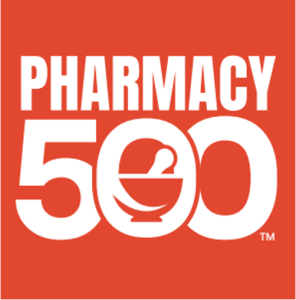Contributed by: Steve Postal, Seniteve Postal, Senior Director, Policy and Regulatory Affairs at National Community Pharmacists Association (NCPA), and Editorial Director of American Society for Pharmacy Law (ASPL)
FDA determined that pharmacies and other “small dispensers” are exempt from certain DSCSA interoperable system requirements until November 27, 2026. NCPA is thrilled with this win, given our continued and consistent advocacy efforts on this issue spanning more than 10 years. Additionally, dispensers that do not qualify as small dispensers may be able to obtain a separate waiver or exemption from certain requirements of the DSCSA.
Who is a “small dispenser”?
The FDA considers a dispenser to be a “small dispenser” if the corporate entity that owns the dispenser has a total of 25 or fewer full-time employees1 licensed as pharmacists or qualified as pharmacy technicians as of November 27, 2024.
What are the small dispensers exempt from?
Until November 27, 2026, these small dispensers are exempt from:
• Requirements to verify the product identifier of the statutorily designated proportion of suspect or illegitimate product in the dispenser’s possession or control.
• Small dispensers are still obligated to meet all other verification requirements.
• The requirement that the transaction information and the transaction statements be exchanged in a secure, interoperable, electronic manner.
• Small dispensers and their trading partners may continue to rely on current methods for providing, capturing, and maintaining transaction information and transaction statements for transactions of product with each other during the exemption period. Small dispensers should verify that their authorized trading partners (ATPs) have this capacity, or that they have a waiver or exemption.
• The requirement that the transaction information required to be exchanged include the product identifier at the package level for each package included in the transaction.
• For transactions to which small dispensers are a party, small dispensers and their trading partners may continue to exchange transaction information with each other that does not include the product identifier at the package level for each package included in the transaction.
• The requirement for systems and processes for verification of product at the package level, including the standardized numerical identifier.
• Small dispensers and their trading partners may continue to rely on current methods for verification activities with each other during the exemption period.
• The requirement for systems and processes necessary to promptly respond with the transaction information and transaction statement for a product upon a request by the secretary, or other appropriate federal or state official, in the event of a recall or for the purposes of investigating a suspect product or an illegitimate product. Small dispensers may continue to rely on current methods to respond to such requests for such information. All dispensers and their ATPs are required to respond to a request for information from an ATP, FDA, or any other appropriate federal or state official within two business days in the event of a recall or to investigate a suspect or illegitimate product.
• The requirement for systems and processes necessary to promptly facilitate gathering the information necessary to produce the transaction information for each transaction going back to the manufacturer, as applicable(i) in the event of a request by the secretary, or other appropriate federal or state official, on account of a recall or for the purposes of investigating a suspect product or an illegitimate product; or (ii) in the event of a request by an ATP, in a secure manner that ensures the protection of confidential commercial information and trade secrets, for purposes of investigating a suspect product or assisting the secretary, or other appropriate federal or state official, with a request described in clause (i). Small dispensers may use current methods to respond to such requests with their relevant transaction information if they directly transacted the product(s) subject to the request.
If a small dispenser is claiming such an exemption, it does not need to formally file such an exemption with FDA. However, FDA recommends that small dispensers should communicate their exercising their small dispenser exception to their trading partners as needed to further facilitate timely and efficient distribution of product. FDA has stated that these exemptions are not intended to provide and should not be viewed as providing a justification for delaying efforts by small dispensers to adhere to requirements under the DSCSA.

How to Apply For a Waiver or Exemption if You Don’t Meet the Small Dispenser Exemptions
The DSCSA one-year stabilization period ends on November 27, 2024, and the agency is not extending the stabilization period beyond this date. Trading partners including pharmacies who do not qualify for the small dispenser exemptions and are unable to meet the enhanced drug distribution security requirements of section 582 of the FD&C Act by November 27, 2024, may request a waiver or exemption from those requirements through FDA’s CDER NextGen portal.2 Pharmacies may request a waiver if the requirements would result in an undue economic hardship or for emergency medical reasons, including a public health emergency declaration pursuant to section 319 of the Public Health Service Act. A pharmacy may request an exemption for other products or transactions from certain requirements in section 582 of the FD&C Act to maintain public health or is otherwise appropriate.
Although requests can be submitted at any time, the FDA recommends trading partners submit a waiver or an exemption request by August 1, 2024. The agency cannot guarantee it will grant or deny the waiver or exemption by November 27, 2024, but will make every effort to do so.
What if a dispenser that does not qualify for the small dispenser exemption has systems and processes in place to comply with DSCSA, but only receives partial data from suppliers? Is the dispenser compliant?
In this case, the dispenser is not compliant. While some pharmacies may have electronic and interoperable systems in place and may have connections established with their trading partners, if these pharmacies are not receiving complete data from their upstream trading partners, they are not in compliance with the DSCSA and should consider filing a waiver or exemption.
What additional resources are available to assist with DSCSA compliance?
The dispenser community has collaborated to make DSCSA educational resources available at www.dscsa.pharmacy. NCPA has resources for its members to ensure they comply with the aspects of DSCSA that are enforceable today and for use in preparing for the end of the small dispenser exemption in November 2026, including its DSCSA checklist. Additionally, the National Association of Boards of Pharmacy has developed DSCSA educational and compliance tools that are available at no cost.







